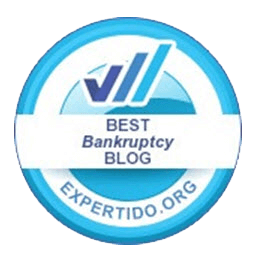Foreclosure is among the most devastating things that can happen to many families. Put simply, foreclosure happens when a homeowner cannot keep up with their mortgage payments. Consequently, they will lose their home and get evicted by their lender. The proceeds the lender receives from the sale of the home will be used for repaying the homeowner’s debt.
Losing your home to foreclosure will also stay on your credit report for approximately seven years, which will reduce your credit score. It will also impact your eligibility to buy another house in the future. In general, you must complete the waiting period before you can take out another mortgage. The specific time you’ll need to wait will depend on your financial situation and your kind of loan.
Homeowners Have Foreclosure Rights
In South Carolina, all foreclosures must go through the judicial process, meaning that lenders must prove that homeowners are failing to pay their monthly payments. Your home will be auctioned off to recover what you owe the lender or owned by the lender and sold if the court approves their foreclosure petition. You will face eviction or be legally required to leave your home once your home has been sold. This will happen after 30 days if the lender sought a deficiency judgment or right after the sale of your home.
The rights of homeowners when facing foreclosure will vary from one case to another. In general, these foreclosure rights will be based on the homeowner’s mortgage terms and conditions as well as state and federal laws. In South Carolina, you generally have the legal right to:
- Receive a notice of foreclosure, depending on your mortgage contract.
- Try to work out a loss mitigation strategy with the lender.
- Prevent foreclosure by paying off the mortgage.
- Stop the foreclosure by reinstating the loan if this condition is in your mortgage contract.
- File a case and challenge the foreclosure in court.
- Receive the excess money from the sale of your home.
- File for bankruptcy to stop the foreclosure. Filing for bankruptcy, specifically Chapter 13, is a suitable option if you need to keep your house and your lender doesn’t want to modify your loan, or you don’t have the money to challenge the foreclosure in court.
While some lenders give a grace period for homeowners who want to keep up with their mortgage payments, this period usually lasts several months before they initiate foreclosure. Unfortunately, in most cases, homeowners who are behind on payments find it more challenging to catch up since there are usually late fees involved.
Seek Legal Assistance From a Skilled South Carolina Foreclosure Attorney
Fortunately, you have several options to avoid losing your home to foreclosure, including Chapter 13 bankruptcy, so you can keep your house and fix your financial health at the same time. Our South Carolina foreclosure attorney at Reed Law Firm offers a free consultation so you can learn more about your options to avoid foreclosure and determine the most suitable option for your financial circumstances.
To schedule your free case consultation with our South Carolina foreclosure attorney, call 803-726-4888 or contact us online.


